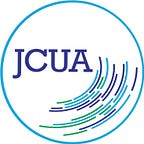#RaiseYourVoice with Steve Rothschild
The next 12 months are critical. We have a mayor and city council who have pledged to implement bold ideas for the City of Chicago. We have an upcoming presidential election that will determine the future of the country. The next year will determine whether we elevate hate, racism and antisemitism or whether we elevate justice, equity and multi-racial democracy.
To prepare for the Jewish new year, we’re speaking with core members about their experiences working with JCUA and their plans for the next year. The following conversation is with JCUA member and family physician Steve Rothschild.
How did you get involved with JCUA and what are you working on?
One of JCUA’s former organizers Danny Kaplan reached out to me, after I had been on the mailing list as a donor. I talked to Danny during the Fall of 2016, prior to Trump’s election, when a lot people were moved to join. This was around when the Laquan McDonald case and other cases of Chicago Police Department misconduct had surfaced. The fact that JCUA was getting involved was very resonant for me.
I’ve been attending the monthly meetings for police accountability work. I’ve done a little bit of writing on behalf of the group, and I’ve had pieces about the GAPA ordinance published in the Chicago Sun-Times and Crane’s Business. As a physician, I view police accountability as a public safety and well-being issue. It becomes about how we broadly define health, which is much more than the absence of disease, but it’s also the idea of feeling safe at home, and knowing that there are things you can do if you don’t feel safe. You can call the police if you have a problem, and feel safe that someone won’t arrive and shoot you or your family members. It is fundamental to think about health in a broader sense, which is super motivating for me, and connect it to the core issue of racial justice in Chicago. As a white person, I don’t face the same challenges as people of color. I didn’t have to give my kids the talk about what happens when they interact with a police officer.
What is it like to be part of the JCUA community?
It’s very meaningful for a few reasons. One is that there is a shared language and theology of Judaism running through JCUA’s work. It’s not the traditional social service approach of many religious congregations — of delivering sandwiches once a year to homeless shelters. JCUA has a more intentional and meaning-focused approach to organizing. Meanwhile, the diversity of the community is wonderful. I do not have other venues where I might be interacting and working closely with a Jewish organizer in their late teens or early 20s, or those who are much older. JCUA is inter-generational and brings together a multi-racial, multi-ethnic Jewish community. All of these things are pretty rare. There are a lot of people who I would never cross were it not for JCUA. That gives me a ton of optimism and it is very rewarding. I often get my point of view challenged and I have to examine what my values really are.
In your mind, what role does JCUA play in the city of Chicago?
Historically, we have sometimes been the nice liberal Jewish people who said good things about civil rights. For an earlier era, it might have been enough. But now we’re doing the hard work of showing up and being there in coalition, in grassroots groups, so that community groups of color know JCUA is a reliable partner, that will show up and will not take over. In GAPA, we were happy to participate without being an officially named partner for a long time. We’ve been accepted in that circle, but now it’s our job to show up and shut up, and listen to what others have to say.
What are your hopes for the next year, personally and politically?
The end of the Trump presidency has to be high on the list. I’m hoping our police accountability ordinance passes, with real teeth in it. And I want the country to be safer for people of color.
How will you raise your voice for meaningful social change in 5780?
For me, it’s going to be about electoral politics. I want to commit to working on the ground, in Michigan, which is one of the four states that will decide the election. My commitment to raising my voice is be consistently registering voters and getting people out to vote.
At this crucial time in our city, and at this special moment in the Jewish calendar, we ask you that you#RaiseYourVoice with JCUA. Learn more about the campaign and our work here.
